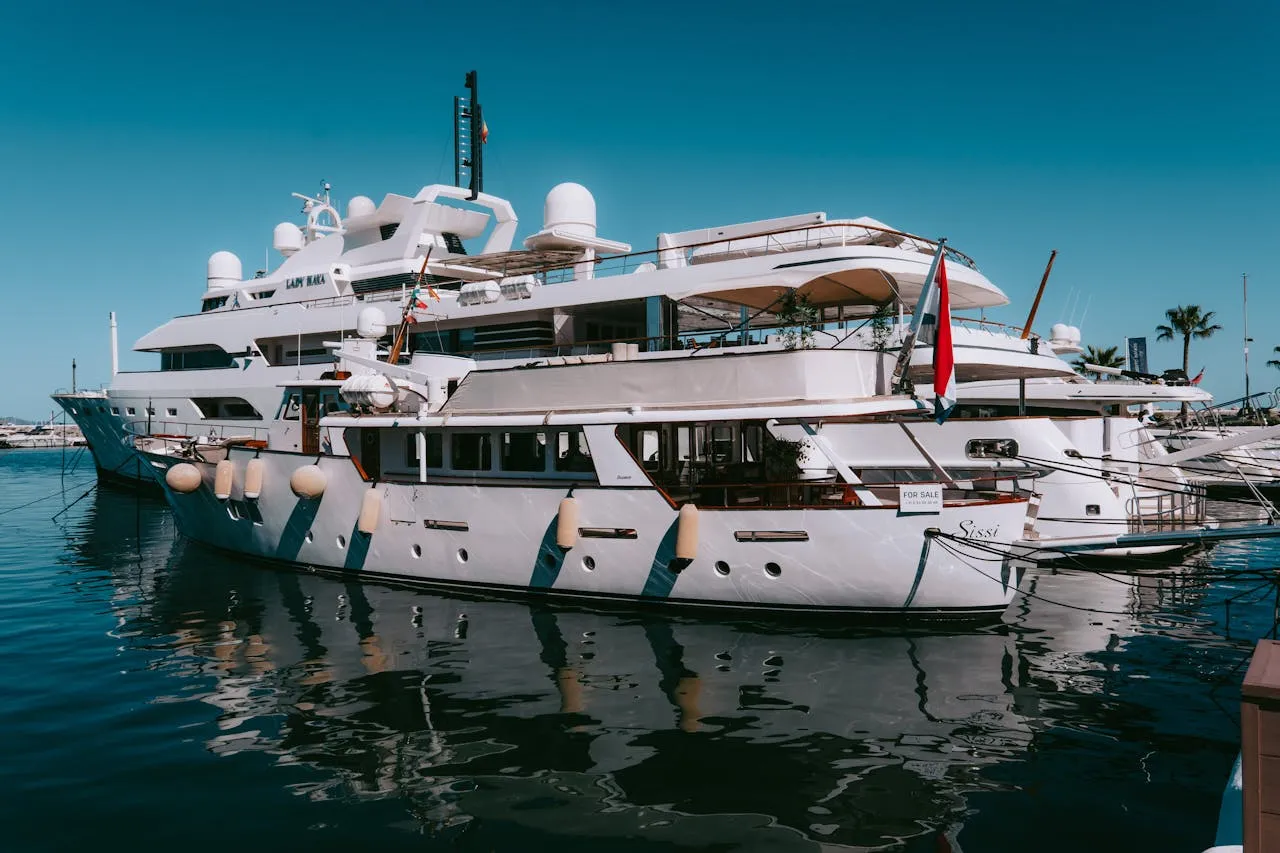16 July 2025
How Fast Are Boats Depreciating?
As a platform specialising in providing a one-stop shop for yacht pricing advice, trading, transport and maintenance, we are often asked: how fast are boats depreciating? Understanding how boats depreciate will not only help buyers make informed financial decisions, but will also allow sellers to make the best possible sale. In this article, we'll take a closer look at how quickly boats depreciate and the factors that influence it, so you can understand all aspects of a boat's changing value.

How Fast Are Boats Depreciating?
Similar to cars, boats begin to decline in value once purchased, but the rate and magnitude of depreciation varies depending on the age, make and maintenance of the boat. Generally speaking, the depreciation of a boat can be divided into several stages:
Year 1 depreciation is the most dramatic: brand new boats tend to lose 20 to 30 per cent of their value within the first year after they are first purchased and brought home. This is a major reason why there is more financial stress when purchasing a brand new boat.
The rate of depreciation slows in years 2 to 5: the value of the boat decreases by approximately 5 to 10 per cent per year during this period, and the depreciation, while still significant, is not as rapid as it was in the first year.
The rate of depreciation levels off between years 6 and 10: if the vessel is properly maintained, the average annual rate of depreciation is likely to be limited to between 2 and 5 per cent, and the value of the vessel is more stable during this period.
After 10 years, the rate of depreciation slows down significantly, depending on the brand and maintenance of the boat. Some classic models, in particular, may even appreciate in value due to scarcity.
Key Factors Affecting the Depreciation of a Boat
The rate at which a boat depreciates in value is affected by a number of factors, the most important of which include:
Differences Between New and Used Boats
New boats depreciate the fastest in the first year after purchase, whereas a used boat that is 2 to 3 years old has already experienced the sharpest drop in value, making the choice to buy such a boat more cost-effective from an economic point of view.
Different Types of Boats
High-end luxury yachts and boats of well-known brands are more likely to retain their value due to their excellent manufacturing process. Comparatively, ordinary fishing boats and pontoon boats depreciate more moderately. Jet skis and small speedboats depreciate faster due to their frequent use.
Influence of the Environment
Saltwater boats are more prone to corrosion and damage, leading to faster depreciation, while freshwater boats are in better condition and retain their value for longer.
Maintenance Determines Depreciation
Well-maintained boats look cleaner and are more mechanically reliable, so they sell for more and depreciate more slowly. Modern electronics, engine upgrades and interior refurbishments can all increase the market value of a used boat. Conversely, boats that lack maintenance will depreciate at a much higher rate due to the high cost of repairs.
How Can I Effectively Slow Down Boat Depreciation?
Here are 4 tips to keep your boat's value longer:
Give preference to second-hand boats: Buying a boat that has been in use for 2 to 3 years can avoid the worst first-year depreciation, with obvious economic benefits.
Stick to routine maintenance and winterisation: regular cleaning and inspection, avoiding prolonged exposure to the sun or moisture, significantly reduces wear and tear and prolongs service life.
Upgrade equipment and interiors in due course: investing in modernising your boat's electronics, refurbishing the interior or refreshing the paintwork can all help to increase resale value.
Choose a reputable brand with a high retention rate: products from manufacturers with a high level of market acceptance have firmer second-hand prices and a greater ability to retain their value.
When Can I Sell My Boat for a Good Price?
The timing of the sale of your boat will also affect your earnings. It is recommended to sell in the spring and early summer, when buying and selling is active and market demand is high, so the selling price will naturally be higher. On the contrary, late autumn and winter when buyer interest declines and often expects significant discounts, sellers find it difficult to obtain the desired price.
Although boats depreciate quickly, especially in the first year, the loss of value can be mitigated through rational selection, scientific maintenance and reasonable timing of the sale. I hope this article on ‘How fast are boats depreciating?’will help you better understand the financial risks and opportunities of yacht investment, and Yachttrading welcomes your enquiry anytime for professional yacht pricing and trading services to make your yachting journey smoother.
 Report
ReportNetizen comment
Comments

Leave the comment
Relevant Recommendation
Yacht Guide
Most Recommended




